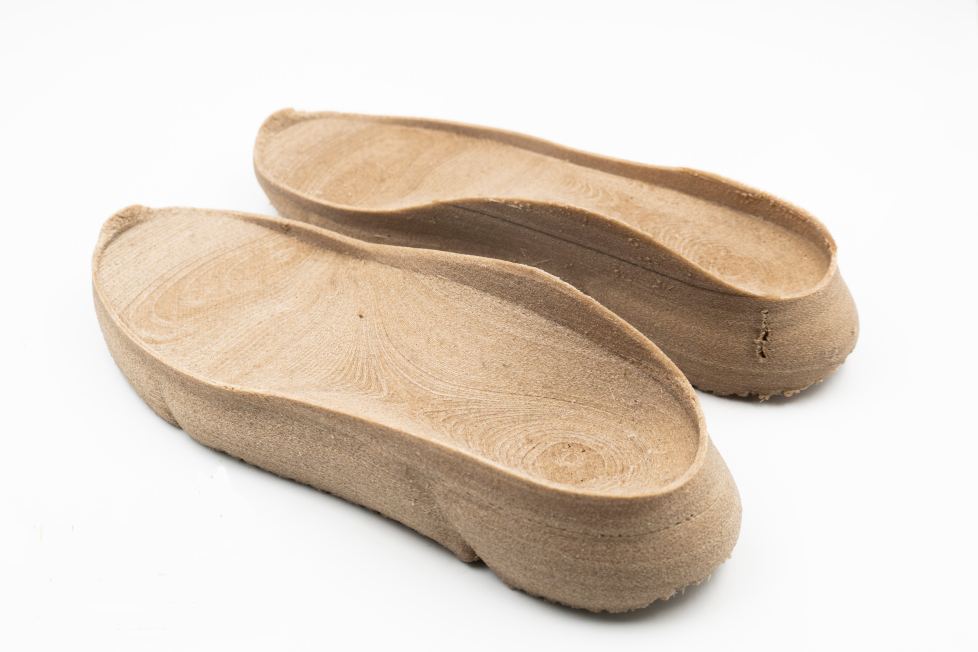Antimicrobial coating for shoe soles
The development of new products from plant-based raw materials was the focus of an EU project in which Fraunhofer researchers from the ISC utilised their innovative coating called bioORMOCER for new fields of application – such as shoe soles and vehicles.

For several years, researchers at the Fraunhofer Institute for Silicate Research (ISC) have been working on compostable barrier layers that could help biopolymers achieve a breakthrough in their use as sustainable and environmentally friendly packaging materials. With bioORMOCER, the team has come up with a material that can be used in a variety of ways. It is a bio-based coating that can be applied to improve the barrier performance of conventional bio-packaging and replace so-called eternity chemicals from the PFAS spectrum. In the EU project INN PRESSME, the Fraunhofer researchers have now successfully demonstrated the potential of their novel bio-based material together with partners using numerous prototypes for various applications.
Recyclable products made from plant-based raw materials
The three-year project, funded by the EU as part of Horizon 2020, involves 27 partners from research and industry from nine countries. The aim of the joint project is to establish a Europe-wide ecosystem for the development and production of plant-based, recyclable and/or biodegradable packaging, energy and transport solutions as well as consumer goods. The goal is to support European companies in achieving climate targets.
The project therefore focussed on the development of new marketable and recyclable products and goods made from plant-based raw materials that use nanotechnology to match and even surpass the performance of current fossil-based materials. To enable companies to make the best possible use of materials in terms of the circular economy, the researchers also want to provide companies with all the data and tools needed to model the life cycle value chain – from raw material conversion to material processing.
BioORMOCER coating modified
After three years of project work, the research team has now produced nine demonstrators from bio-based materials for pilot production in very different sectors - for environmentally friendly packaging, energy, transport and consumer goods. According to the Fraunhofer team, it was involved in six test cases. Its task was to prepare the products made from plant-based raw materials with special bio-based functional coatings for their respective requirements in use. According to the researchers, the bio-based material bioORMOCER was modified in such a way that it can now be used not only as a biodegradable barrier layer for paper-based packaging, but also for scratch-resistant and optical coatings in the automotive industry. In addition, antimicrobial and easy-to-clean coatings for sports products and shoe soles have also been developed.
The Fraunhofer ISC also scaled up the required material quantities to pilot scale. According to the researchers, for example, ‘a 100-litre paint reactor and a roll-to-roll system could be used to apply the barrier layers to a paper modified with nanolayers’. The quantity of 100 litres would therefore be sufficient for up to 3,000 square metres of surface, as the bio-based layer only needs to be applied very thinly.
Developing a Europe-wide pilot plant network
The project partners are currently establishing a Europe-wide pilot plant network that offers European companies effective support in upscaling their own biobased solutions via a single entry point (SEP) without having to invest in their own plant. This will significantly reduce the entrepreneurial risk until new plant-based products are ready for the market, the researchers write.
bb


